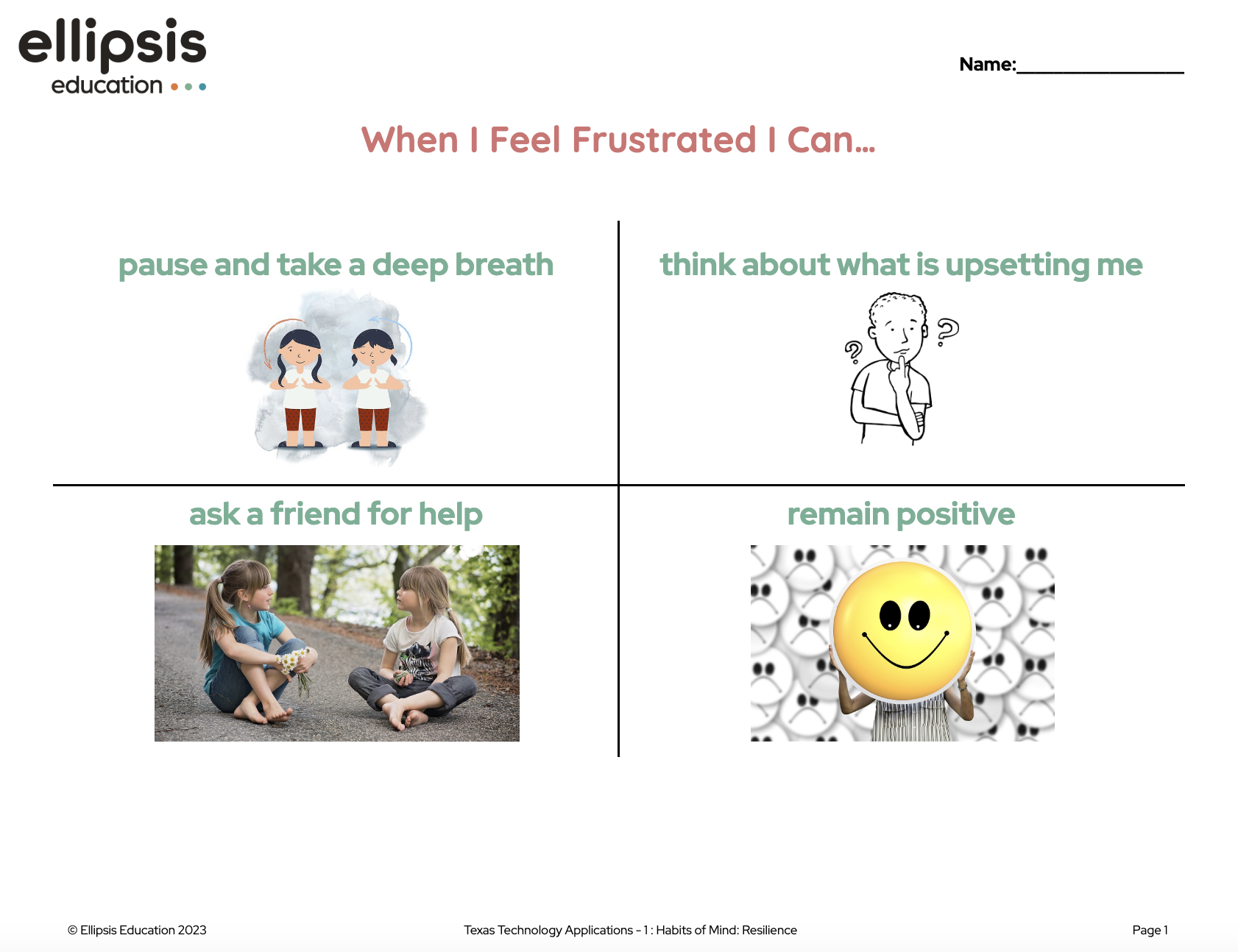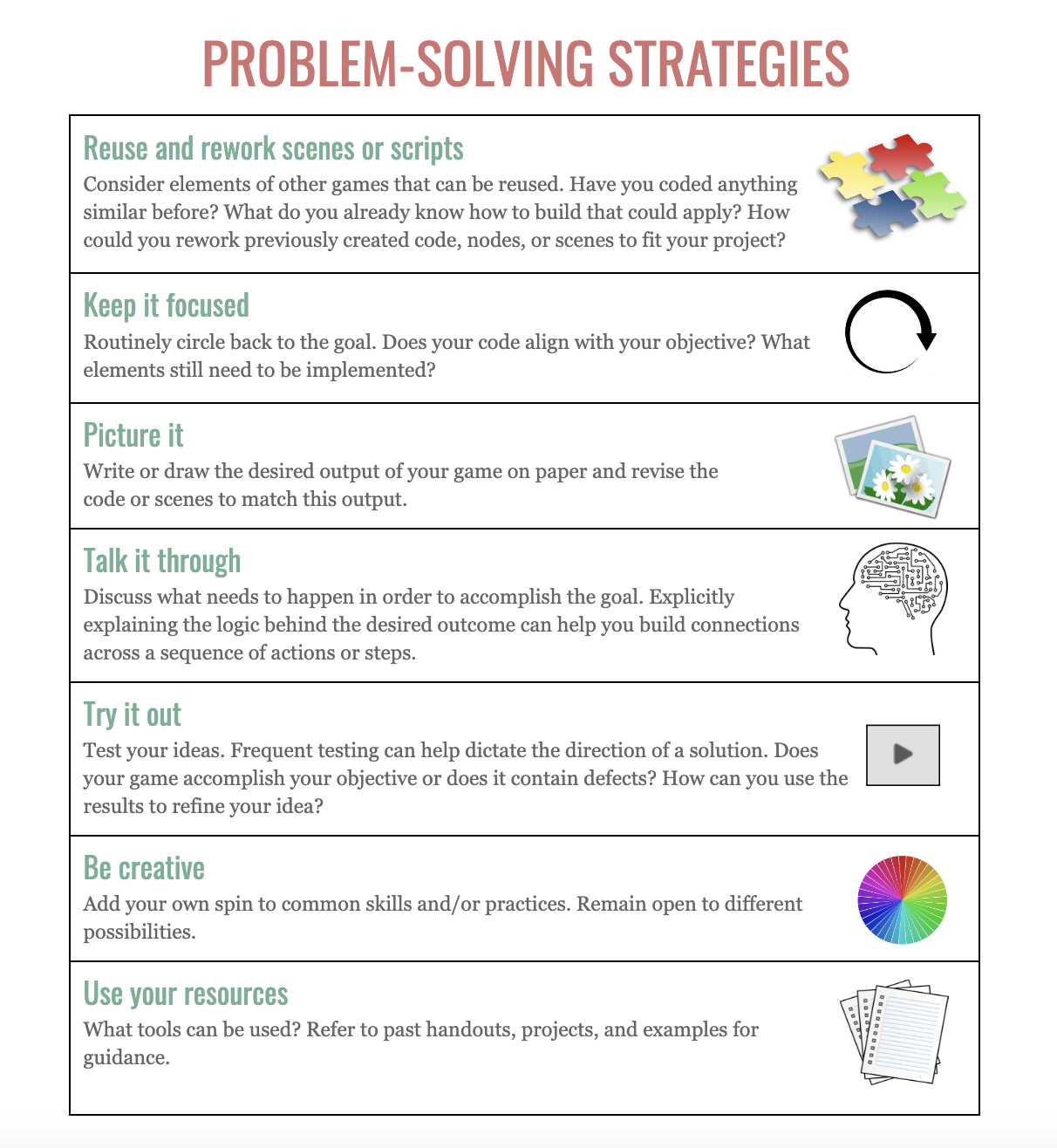

Have you ever stopped and asked yourself, “Who is doing the work in my classroom? Who is doing the thinking?” With the pressures to cover as much breadth of content as possible in an academic year, to teach bell to bell, and to create academic gains for students who are behind, it can be easy to slip into a routine of solving thinking and academic problems quickly by doing all of the thinking work for our students. When there is a lot of content to cover each day, it can be tempting to skip wait time and silence. It can be tempting to drop a hint or even give an answer away. However, this deprives students of the opportunity to grow in all kinds of skills. First and foremost, we want our students to be problem solvers. But how can they practice this skill without being allowed time to struggle with complex questions and interesting and challenging ideas? We also want students to gain persistence and academic tenacity. But how can they build those muscles with limited time and simple lines of questioning?
As educators, it is imperative that we can answer the question “Who is doing the work in my classroom?” with a resounding response of “The students, of course!” and be able to back up that response with evidence of how we create extended opportunities for students to think and work and grapple with big ideas and productive struggle. Fortunately, there are many examples of academic interventions in the classroom that we can implement.
Of course, the line between productive struggle and shutting down and giving up is a thin one. How can I know when my students are sitting in productive struggle and when they are shutting down? There are a few signs to look out for.
Productive struggle looks like:

If you are observing these types of behaviors, your students are engaged in the work and likely will not need many intervention strategies in the classroom.
Shutting down and giving up looks like:
If you are observing these types of behaviors, your students are on the brink and may benefit from academic intervention strategies. The importance of intervention in education in these instances cannot be understated. But, it’s not always immediately clear how teachers can coach students through these moments of self-doubt.
So how do we keep students engaged in productive struggle or bring them back once they’ve shut down? In the following sections, we laid out a few examples of interventions in the classroom that you can try.

There are simple, proven techniques and instructional intervention examples that can be applied before students even arrive in your classroom. Help students engage with big ideas and challenging questions by providing flexible learning space. Collaborative tools like butcher paper, poster paper, dry erase boards, or digital sharing tools can all encourage students to brainstorm and share ideas and test solutions collaboratively. Additionally, getting students on their feet and working together with large format, vertical surfaces helps encourage teamwork and engagement. When planning lessons, ensure you have a clear picture of the types of important ideas you want students to come away with. Is the “correct” answer the only end goal? How will you highlight the importance of all the tough thinking work that comes before the right answer?
Have you pivoted from “sage on the stage” to “guide on the side?” In student-centered classrooms where the teacher acts more as a coach and less as an all-knowing fountain of knowledge, educators know the importance of intervention in teaching because the expectation is that students are doing the thinking and the work and will all need help at some point in their exploration and learning. When students start asking for answers, how do you support them? Try asking questions of your own, like these:
When students have a “growth mindset,” their perspective on challenges shifts from something unattainable to something they can overcome. Try teaching your students growth mindset strategies to build resilience. When students recognize that they are overwhelmed or stressed, they can fall back on these strategies:

Consider reviewing these strategies before a challenging lesson or assignment, or displaying the strategies on a poster in your classroom. Building a culture of growth mindset in your classroom will give students comfort in making mistakes and help them be resilient to challenging tasks.
In the computer science classroom, many learning opportunities will necessitate the use of intervention strategies for students because most students are new to the subject matter. Exercising and building new academic muscle in highly challenging thinking environments demands resilience and a growth mindset. We can help our students stay in the zone of productive struggle through intervention strategies. In the Ellipsis Education Curriculum, we provide a diverse range of challenging topics through unplugged and coding activities that support students’ ability to self-regulate through productive struggle. Examples of interventions in the curriculum include:

We hope this list of classroom interventions for struggling students facilitates your ability to answer the question, “Who is doing the work in my classroom?” with a proud, “The students, of course!”
See how Ellipsis Education curriculum supports students in productive struggle with interventions. Schedule a demo with one of our curriculum experts.